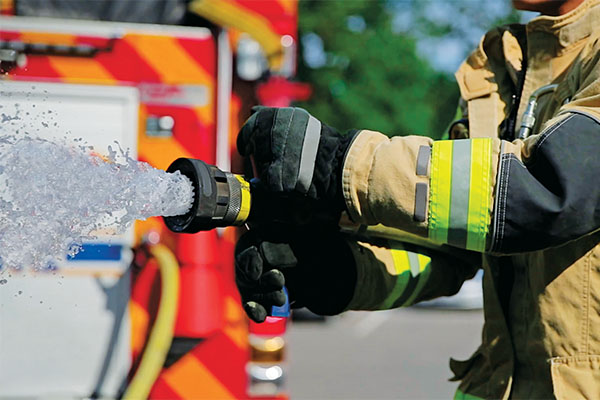Propane emergency response training refreshed
Since 1999, the Propane Education & Research Council’s (PERC) Propane Emergencies program has supported the industry’s ability to work with the fire service in response to propane-related hazards and incidents.

The updated program leverages online training modules to make the material more accessible. (Aranga87/iStock / Getty Images Plus/Getty Images)
The latest edition of the program, developed by PERC and the International Association of Fire Chiefs (IAFC), aims to strengthen that relationship and improve education and training for both parties.
Whereas prior iterations of the program were geared toward propane experts, the revised format seeks to establish a shared language between propane professionals and the fire service to support the best possible outcomes in an emergency.
“It’s training for industry and firefighters, in their language, by their experts,” explains Dave Latourell, director of regulatory compliance at Paraco and a volunteer firefighter.
Propane professionals who complete the program can use that shared language to serve as expert advisers to the firefighters who respond to a scene. Firefighters, in turn, gain knowledge of propane properties and systems and can earn certification through the Pro Board, the fire service’s accreditation system.
PERC backed the revision effort with $580,000 in funding.
The right time
PERC’s project team has worked on updates throughout 2022 and aims to roll out the program in full in 2023, says Eric Kuster, senior vice president of safety, education and compliance at PERC.
It’s the right time to update the program for a number of reasons, say Kuster and Latourell.
For one, the fire service currently is focused on hazardous materials compliance and training, explains Latourell. It also has sought to close gaps in training following high-profile incidents like the 2019 Farmington, Maine, explosion, which left a fire captain dead and six firefighters injured. According to a federal report, an improper bollard installation severed a gas line and caused a propane leak.
By aligning revisions to the training needs of the fire service, PERC aims to increase adoption and use of the program, says Kuster.
What’s new
Modularized and online: The revised program begins with a three-part online training. Small propane companies and volunteer fire departments may not have the resources to follow a full curriculum, so discreet modules enable learners to customize their approach.
“A volunteer department may only meet once a week and train for three hours a week. How do they work [propane] into their training program?” says Kuster. “This modularized, online approach gets them the opportunity to take that training.”
Hands-on training: An eight-hour, hands-on component allows propane professionals and firefighters to work together in the field in response to a staged incident. The new approach condenses older, live-burn programs to focus on tactical tabletop exercises that prioritize mitigation and staging strategies.
PERC and IAFC will pilot the new format at 12 fire academies across the country, says Kuster.
Propane technologies: The updates address applications for propane that have emerged or have received more attention since the program was last updated in 2012. New topics include autogas, food trucks, cogeneration and cannabis.
“As the industry evolves, the exposure and opportunity for an emergency grows as well, so the course mirrors the growth and development of our industry,” notes Latourell.
Building partnerships
Kuster encourages propane retailers to contact their local fire departments and inform them about how the Propane Emergencies program benefits firefighters with accessible training and accreditation opportunities. Retailers can even arrange walkthroughs of their facilities.
Many state associations are active in fire safety and can facilitate those conversations, Kuster adds.
Start learning
Part one of the online training is housed in PERC’s Learning Center (training.propane.com) and the IAFC Academy portal (iafcacademy.org). Parts two and three of the online component will roll out in early 2023. Propane and fire service professionals can participate at no cost.
















